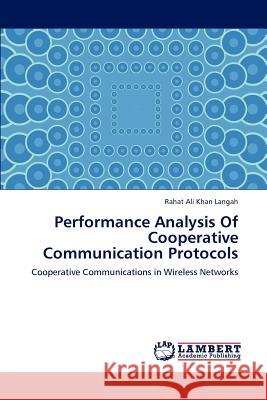Performance Analysis Of Cooperative Communication Protocols » książka
Performance Analysis Of Cooperative Communication Protocols
ISBN-13: 9783659197451 / Angielski / Miękka / 2012 / 68 str.
With the rapid growth of multimedia services, future generations of cellular communications require higher data rates and a more reliable transmission link while keeping satisfactory quality of service. In this respect, multiple input multiple-output (MIMO) antenna systems have been considered as an efficient approach to address these demands by offering significant multiplexing and diversity gains over single antenna systems without increasing requirements on radio resources such as bandwidth and power. Although MIMO systems can unfold their huge benefit in cellular base stations, they may face limitations when it comes to their deployment in mobile handsets. This work is based on cooperative communications in wireless networks. We focus on Bit error rate (BER) performance analysis of cooperative communications with either an amplify-and-forward (AF) or decode-and-forward (DF) cooperation protocol using Matlab. We consider the single and multi relay scenario in our simulations.
With the rapid growth of multimedia services, future generations of cellular communications require higher data rates and a more reliable transmission link while keeping satisfactory quality of service. In this respect, multiple input multiple-output (MIMO) antenna systems have been considered as an efficient approach to address these demands by offering significant multiplexing and diversity gains over single antenna systems without increasing requirements on radio resources such as bandwidth and power. Although MIMO systems can unfold their huge benefit in cellular base stations, they may face limitations when it comes to their deployment in mobile handsets. This work is based on cooperative communications in wireless networks. We focus on Bit error rate (BER) performance analysis of cooperative communications with either an amplify-and-forward (AF) or decode-and-forward (DF) cooperation protocol using Matlab. We consider the single and multi relay scenario in our simulations.











